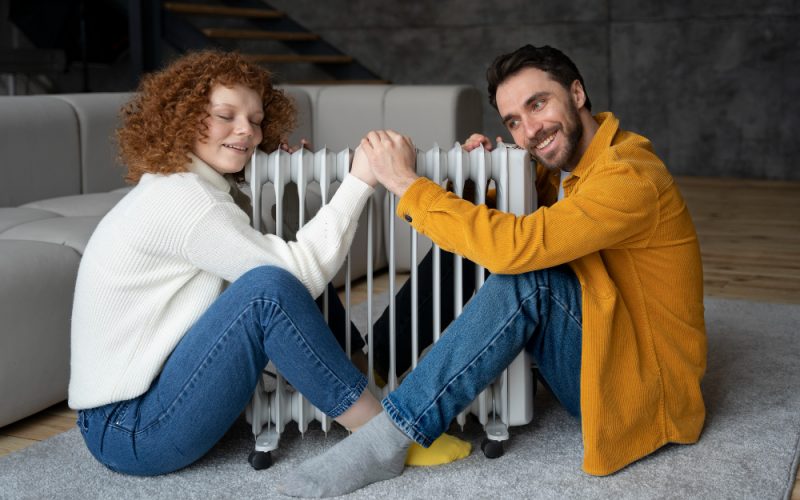When it comes to heating your home, you have two main options: radiators or forced air. Both systems have their pros and cons, so it’s important to understand the key differences before deciding which one is right for your home.
compare Radiators vs. Forced Air
Radiator Heating Systems
Radiator heating systems use water or steam to distribute heat throughout the home. The water or steam is heated in a boiler and then circulated through a network of pipes and radiators located in each room.
Pros of Radiator Heating:
- Even, consistent heat distribution
- Longer lifespan (often 30+ years)
- Quieter operation
- Better for allergy sufferers (no blowing dust/allergens)
- More energy-efficient in some cases
Cons of Radiator Heating:
- Slower to heat up and cool down
- Harder to zone or control individual room temperatures
- Typically more expensive to install
- Radiators can take up valuable floor/wall space
Forced Air Heating Systems
Forced air heating systems use a furnace to heat air, which is then distributed throughout the home via a network of ducts and vents.
Pros of Forced Air Heating:
- Faster heating and cooling
- Easier to zone and control individual room temperatures
- Less intrusive – no large radiators
- Often cheaper to install
Cons of Forced Air Heating:
- Can blow dust and allergens around
- Noisier operation
- Shorter lifespan (15-20 years on average)
- Less energy-efficient in some cases
Which System is Best for Your Home? compare Radiators vs. Forced Air
The “best” heating system ultimately depends on your specific home, needs, and preferences. Some key factors to consider:
- Home size and layout: Radiators work well in smaller, more compartmentalized homes, while forced air is better suited for larger, open floor plans.
- Climate: Radiators are often more efficient in colder climates, while forced air may be preferable in milder climates.
- Energy efficiency goals: Radiators can be more energy-efficient, but forced air offers better zoning and temperature control.
- Budget: Radiator systems generally have a higher upfront cost but lower long-term operating costs.
No matter which system you choose, it’s important to have it properly installed and maintained to ensure optimal performance and efficiency. Consulting with a qualified HVAC professional can help you make the best decision for your home.





